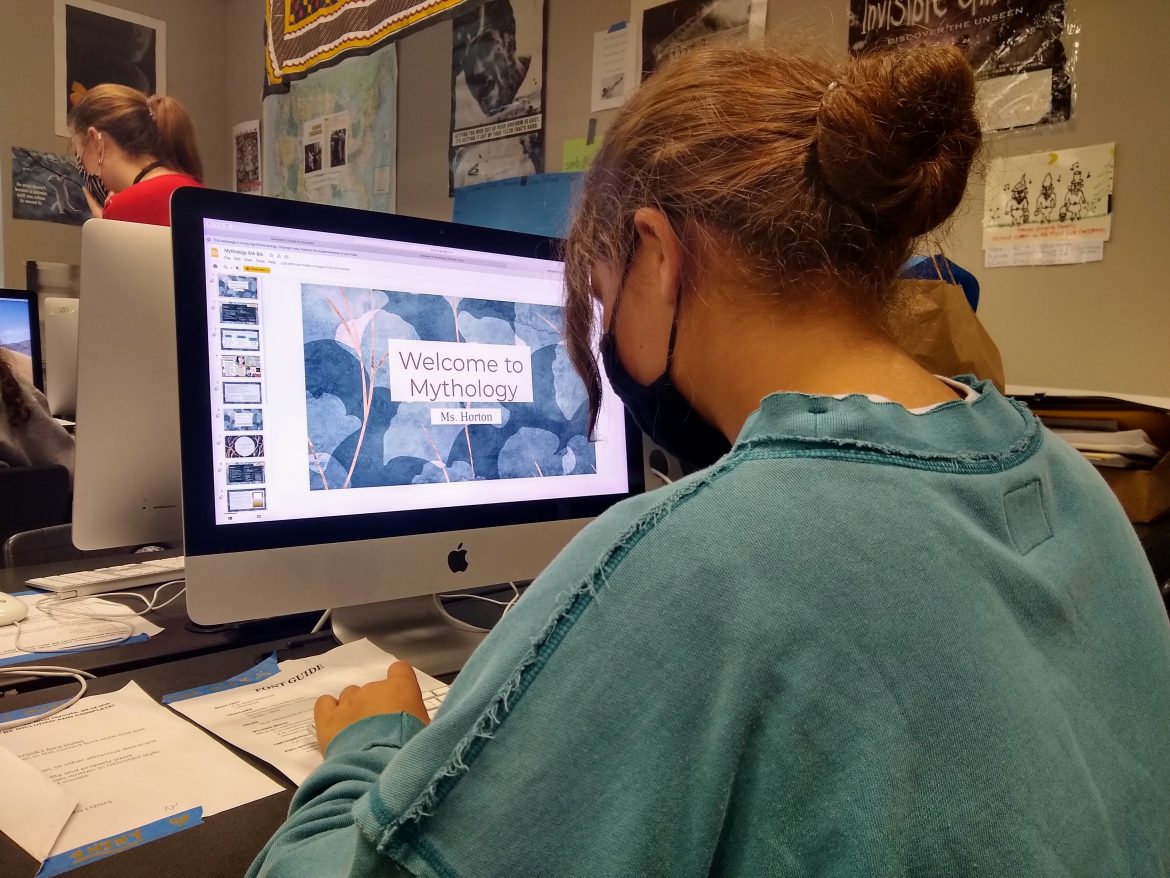A Clarke Central High School student views a Mythology class slideshow. Two new electives were introduced at CCHS for the 2021-22 school year, including Mythology, and English department teacher Erin Horton aims to use her class to show how mythology is still relevant today. “Mythology is a way of people being able to explain the world. And these are the stories that we’ve told ourselves that shape our world that we’ve been using for as long as humans have existed,” said Horton. “Even before we could write, even before we had proper language, we used images to create these myths and these stories.” Photo by Anna Shaikun
The CCHS English department will be offering two new elective courses for the 2021-2022 school year, Speech/Forensics I and Mythology.
Starting in the 2021-2022 school year, the Clarke Central High School English department will be offering two new courses, Speech/Forensics I, and Mythology. There are no prerequisites required for either course.
English department teacher Erin Horton, who is teaching Mythology, plans to explore common themes across myths from a range of cultures and how they influence modern texts.
“I’m really going to try and cover as much as (the class) possibly can, as much as we have recorded,” Horton said. “Not every culture has been able to record (their myths), or have lost their stories over time through erasure.”
Horton hopes students will come away from the class with a better understanding of the ways stories shape our world, how mythologies are being used in our contemporary art and politics, and ultimately the interconnectedness of the world’s various cultures and systems.
“The whole point of the class is to figure out why we still talk about myths and why we still see them showing up in popular culture and even in the lessons that we pass on to each other,” Horton said.
CCHS English department teacher Kaela Sweeney will be teaching Speech/Forensics I. The course will help students learn how to build an argument and present a persuasive case through speech and debate.
“I want to divide the class into storytelling and that part of speaking, and advocacy, or how you can use your voice to create change,” Sweeney said. “And so I’m hoping that we can look at different examples of that within our own community, like TED Talks and other strong examples of public speaking.”
Sweeney hopes to prepare students for public speaking with a variety of purposes and audiences.
“I hope that (my students will) feel more confident with public speaking in general (after this class),” Sweeney said. “I hope that they will understand the value of their stories and their voice, and I hope that they will use their voice and their thinking to create change in their communities.”
